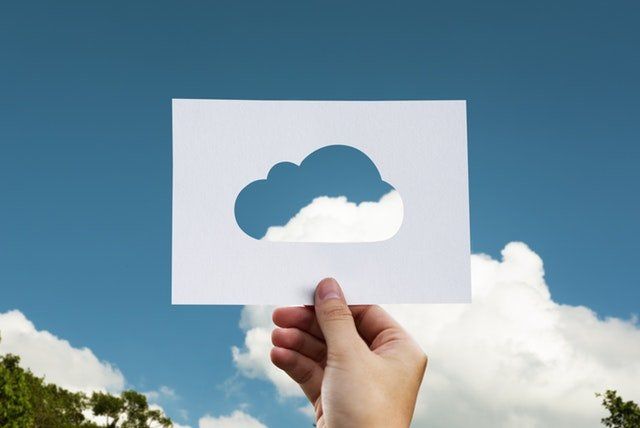Backup Options: Cloud Storage vs External Hard Drive

Backup is important because of the consequence of data loss to businesses. But it can be challenging to select the right backup solution for your business. Hard drives have long been used for data backup but cloud storage is fast gaining ground as a storage option among business owners.
To store data on an external hard drive, you connect a drive to your PC via USB cable, then manually select files and copy those files to your external drive. You can also use backup software with an external hard drive in order to help assist with backing up your files.
Cloud storage involves copying your local files over a network to a storage space on the internet.
This article shares the advantages and disadvantages of cloud and hard drive options so you can determine which is the most suitable fit for your business needs.
Cloud: Advantages
Save and Access Everywhere
In the cloud option, files from all your devices can be configured to back up to your cloud storage space. Not only that, you can access your stored file from anywhere. Any staff with necessary credentials can access saved data to enable them to work remotely. This can be done via your cloud services app or a browser with an internet connection.
Scalability
Cloud storage allows you to store as much and as little data as you have. In addition, you only pay for the storage space you use. As your business grows, a cloud service will accommodate your data storage needs with no effort on your part, just extra payment for the storage used.
Auto Sync
With cloud technology, you can set some folders or all files to automatically backup to your cloud space. When new files are created on your PC or device, they are saved to the cloud without your intervention. Also, if you need to access old backups, it is as easy as searching and downloading it.
Disaster Recovery
Cloud storage is immune from disasters that affect specific businesses. This makes it the ideal option for disaster recovery. When you need to get online after a disaster, a cloud service allows you to access your files from other working devices.
Sharing and Collaboration
It is easy to share cloud-based files among colleagues. You don’t need to make new copies every time another person requests the file. The file is backed up once, then you can give access to those who need it.
Cloud: Disadvantages
Security
Depending on which provider you use, your cloud data can be vulnerable to attacks. It’s best to do the research first about which cloud service provider to choose before uploading any valuable information to the cloud.
Privacy
Data stored on third-party cloud storage is out of your control. This can be problematic for businesses dealing with sensitive data. Moreover, regulatory requirements may prohibit some businesses from storing their data in the public cloud.
Cost
Some cloud services are free for limited storage and access. But businesses with large data must pay. Since cloud services mostly operate on a subscription model, you will need to be prepared to pay either a monthly or yearly fee.
External Hard Drive: Advantages
Affordable
External hard drives are affordable and they involve a one-time upfront cost.
Security
When you successfully back up your data to a hard drive your data is as secure as possible. Only through physical access to the drive can your data be accessed or tampered with.
Speed
It is quick to transfer data to an external drive. USB 2.0 and the 3.0 technology have made data transfer faster.
External Hard Drive: Disadvantages
Durability
An external hard drive can break at any time without prior warning. If this happens you will lose access to all your data.
Loss
External hard drives can be carried around. This poses a risk of loss, theft or accidental destruction.
Responsibility
You are responsible for your hard drive security. When you have other pressing issues at hand, you may forget to backup or update important files. Also, using the security features of an external hard drive such as encryption may be challenging or inconvenient for some business owners.
In Conclusion
External hard drive and Cloud services have their advantages and disadvantages. Your business needs will determine which one is the best for you. If you own one or two computers or process sensitive data that must not be transferred to third parties, then external hard drive backup may be the best option. Additionally, businesses with multiple computers and devices which require data to be backed up and accessed from multiple locations will find cloud storage a better option. To learn more about which backup option is best for you, please feel free to contact one of our team members , we’d be happy to speak with you.
The post Backup Options: Cloud Storage vs External Hard Drive appeared first on SDTEK | San Diego, CA.


